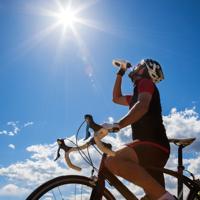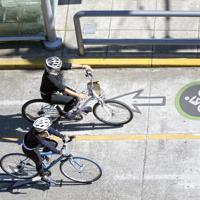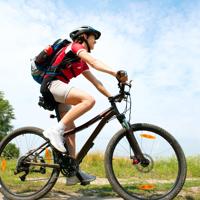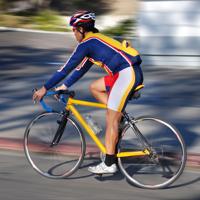Nutrition for Cyclists
Discover essential nutrition tips tailored for cyclists to enhance performance, recovery, and overall health.
Cycling is more than just a mode of transportation. It’s a lifestyle, a commitment to health, and a path to fitness. A crucial part of this journey is understanding how to nourish your body. Nutrition for cyclists is not one-size-fits-all; it involves balancing macronutrients, staying hydrated, and considering the timing of meals. Let’s delve into the essential aspects of nutrition for urban cyclists.
Understanding Macronutrients
Carbohydrates
Carbohydrates are often the first thing that comes to mind when thinking about fuel for cyclists. They provide quick energy, making them crucial before, during, and after rides. Whole grains like quinoa, brown rice, and oats are excellent sources of complex carbs. They release energy slowly, keeping you powered through your ride.
For shorter rides, a banana or a handful of raisins might suffice. A study published in the Journal of Sports Sciences suggests that consuming carbs during endurance activities can help sustain performance.
Proteins
Protein is essential for muscle repair and recovery. After a cycling session, especially a strenuous one, your muscles will need proteins to rebuild and strengthen. Sources like lean meats, eggs, dairy products, legumes, and tofu can be part of a cyclist’s diet.
An article in the International Journal of Sport Nutrition and Exercise Metabolism highlights that consuming 15-25 grams of protein post-exercise can optimally stimulate muscle synthesis.
Fats
Healthy fats are vital for long-term energy and joint health. Avocado, nuts, seeds, and olive oil are rich in essential fatty acids. While fats are not the primary energy source during rides, they play a crucial role in overall health and satiety.
Hydration
Staying hydrated is as important as eating the right foods. Dehydration can impact your performance and recovery. Water is your best friend for most short rides. For longer, more intense rides, consider drinks with added electrolytes to replenish vital minerals lost through sweat.
According to an article in the American Journal of Clinical Nutrition, even mild dehydration can impair cognitive and physical performance, making hydration a priority during and after rides.
Timing and Portions
Eating the right foods at the right times can greatly affect your cycling performance and recovery.
Pre-Ride
A small meal rich in carbs, with a bit of protein and low in fats, is ideal about 1-2 hours before a ride. A bowl of oatmeal with fruit or a peanut butter sandwich can provide the necessary energy without making you feel too full.
During the Ride
For rides longer than 90 minutes, consider bringing along some quick energy sources. Energy gels, bars, or even a banana can provide the needed carbs to keep your energy levels up.
Post-Ride
Post-ride nutrition should focus on replenishing energy stores and aiding muscle recovery. A combination of carbs and proteins is beneficial. A smoothie with spinach, a banana, and a scoop of protein powder or a simple chicken wrap can work wonders.
Special Considerations
Everyone’s nutritional needs can vary based on age, gender, fitness level, and goals. It’s important to listen to your body and make adjustments as needed. Consulting with a nutritionist or dietitian who understands sports nutrition might provide more personalized insights.
Conclusion
Fueling your body adequately will not only improve your cycling performance but also enhance your overall health and enjoyment of the ride. Experiment with different foods and timings to find what works best for you. Remember, what you eat is as much a part of cycling as pedaling itself.
Whether you’re a seasoned urban cyclist or just beginning, embarking on the journey of understanding cyclist nutrition can be as rewarding as the ride itself. Enjoy the process, and happy riding!

Discover a variety of energy-rich foods that can help fuel your bike commuting adventures and enhance your performance.

Explore how incorporating cycling into your routine can enhance your physical and mental well-being while contributing to an active lifestyle.

Explore how bicycle commuting can enhance your physical and mental wellbeing while promoting a healthier lifestyle.

Explore health and fitness tips and information.

Explore inspiring stories from urban cyclists that highlight the joys and challenges of riding in the city.

Discover how you can improve your fitness by incorporating cycling into your daily commute with practical tips and insights.

Explore the key factors to consider when choosing clothing for your cycling commute, from comfort to weather protection.

Discover practical strategies for planning your bicycle commuting route, balancing safety, efficiency, and enjoyment.